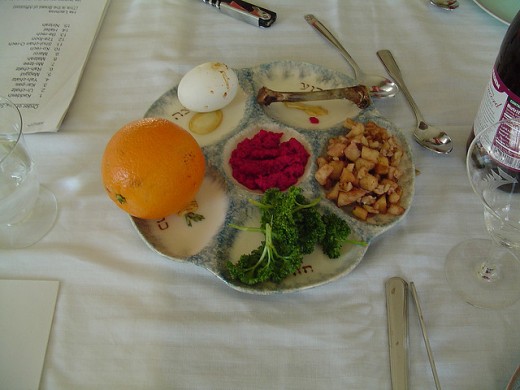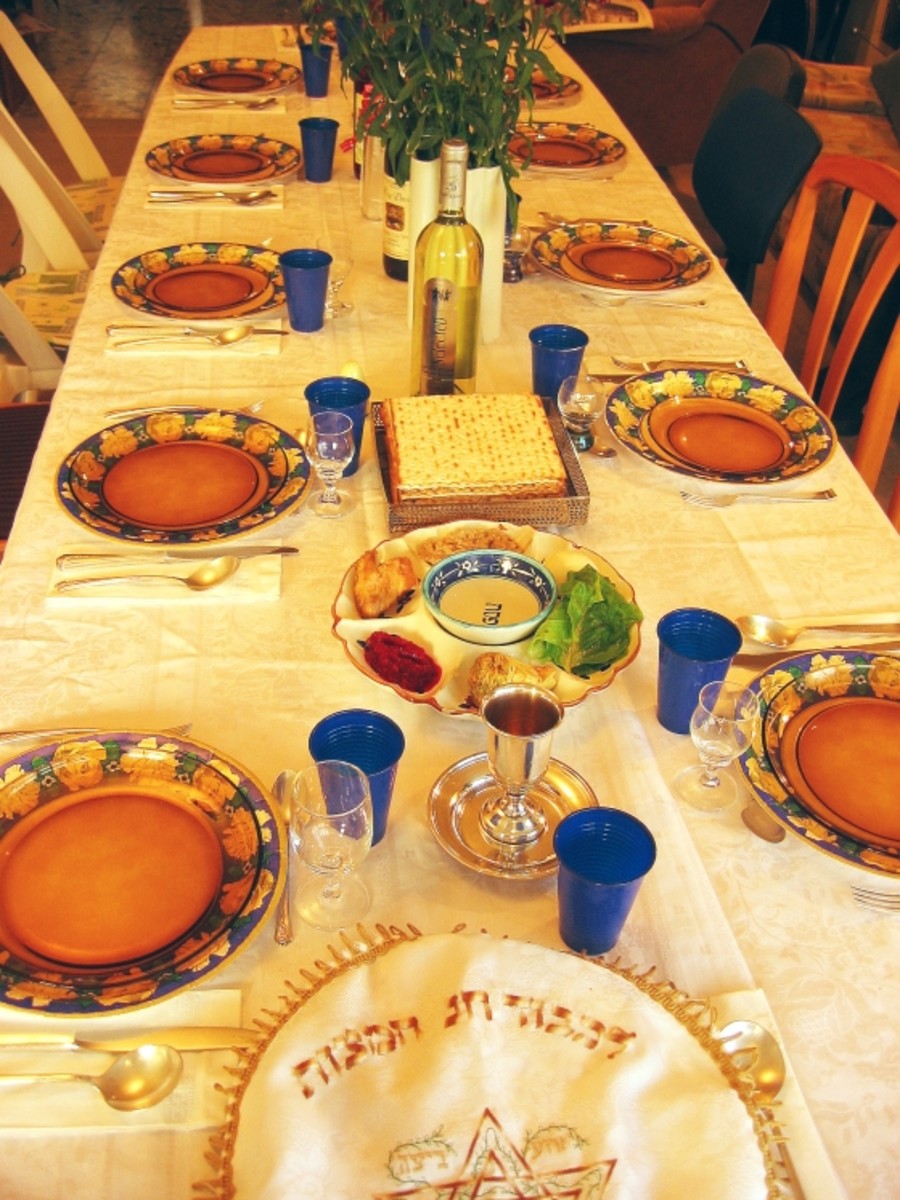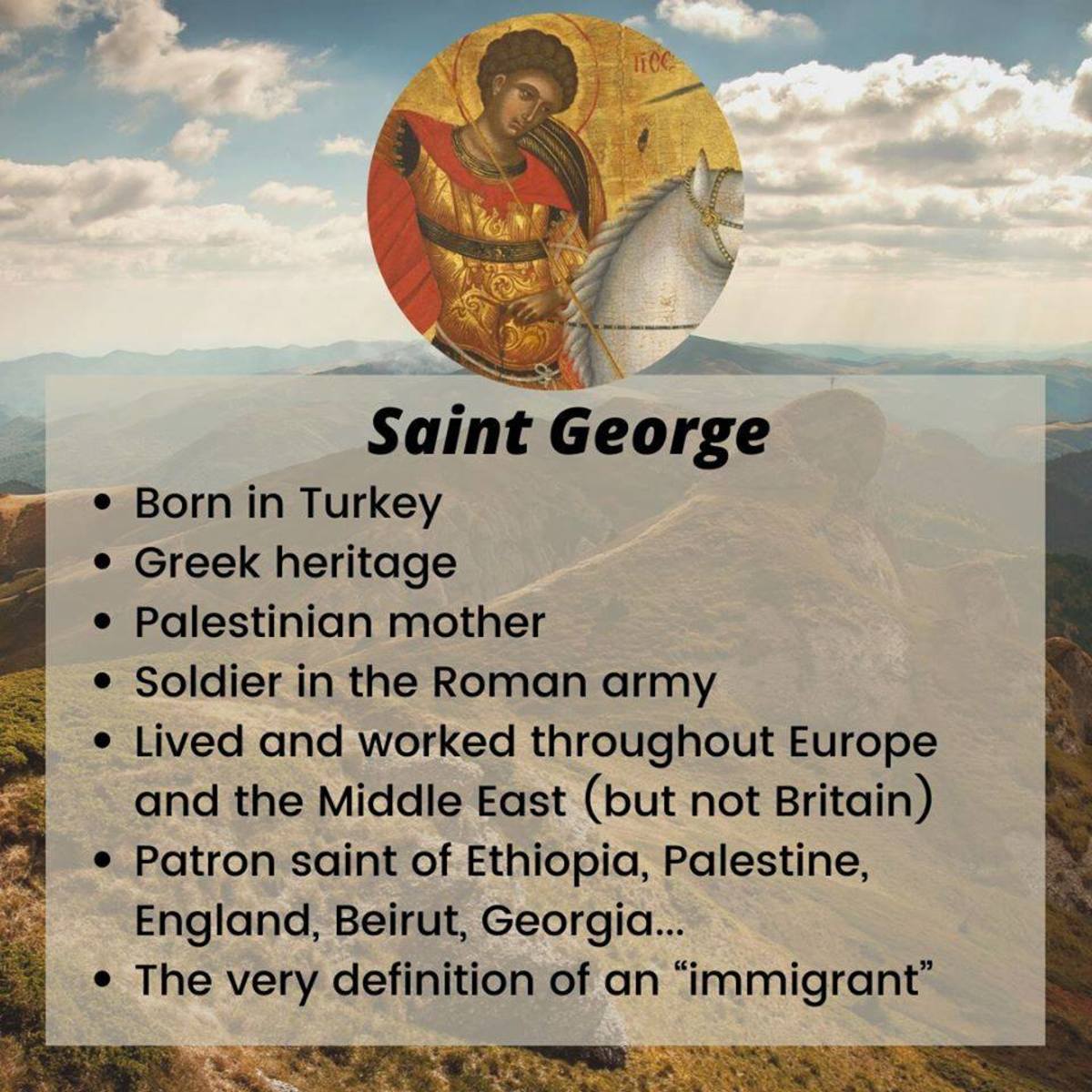Passover: Seder Gave Israelites Super Nutrients for Flight From Egypt

Holy Table Filled With Super Foods
Jews around the world gather with family for the sacred Passover celebration, a commemoration of the night the angel of death "passed over" the houses of devout Israelites enslaved in Egypt, sparing the lives of their firstborn sons. God gave his "chosen people" instructions on the food they were to eat before their flight from Egypt; the word came with God's promise to deliver his people safely, under Moses' leadership, to the Promised Land.
It's well known that the Seder meal on the first night of Passover includes specific foods that are symbolic of the people's struggle to leave Egypt and their faith that God would provide for them. But a lesser-known fact is that the sacred meal is packed with a potent combination of nutrients that could well have given the Israelites a head start on their long journey across the desert. As it turns out, they needed the extra fuel; after Moses convinced the Egyptian king to "let my people go," the pharaoh changed his mind and ordered his soldiers to pursue them across a barren land to the site of Moses' "parting of the Red Sea."
Here's a breakdown of the foods typically included in the Seder meal, as well as a few interesting additions, and how each one gave the Israelites the extra edge they needed to begin their dramatic flight from slavery.
Unleavened Bread
The Israelites were instructed by Moses to slaughter and roast a lamb or goat and spread the blood over their doorframe as a sign that they were observant. Because of the state of preparedness and apprehension they were expected to eat the meal in, they could not wait for their leavened bread to rise, so they had to eat it unleavened. So the tradition of eating matzah at Passover was born.
This is significant from a dietary standpoint because unleavened bread does not contain yeast, baking soda or baking powder. Sprouted breads, which are made from sprouts, grains, legumes and seeds, are similar in this way. Eating foods without yeast or flour, as some raw foodists do, eliminates the leavening agents that can also lead to a spike in insulin that lowers the blood sugar and causes an energy crash. Livestrong.com also points out that avoiding yeast could protect the body from developing candida infections.
The last thing the Israelites needed on their flight to freedom was a blood-sugar crash or an infection of any kind. So matzah was just the ticket, when combined with the roast meat and bitter herbs of the initial Passover meal.
Roasted Lamb
The Bible says that God told Moses and Aaron to tell the Israelites: "...they are to eat the meat [lamb] roasted over the fire, along with bitter herbs, and bread made without yeast. Do not eat the meat raw or boiled in water, but roast it over a fire--with the head, legs and internal organs....[eat] with your cloak tucked into your belt, your sandals on your feet and your staff in your hand." [NIV]
This was to be a cut of young meat from the herd, in other words, the meat would be tender and easy to digest, would give the Israelites a shot of protein and iron for their long journey. Iron combats fatigue and gets the oxygen pumping through the blood, while protein allows muscle development and boosts the immune system. Although trimming the fat from a roasted lamb would have been easy, fat means calories, which are sorely needed for a night in flight. Also, the method of roasting over a fire would not only have trapped the juices and made the meat tasty, but it would have made sure that any bacteria on the meat was killed and that there was little risk of food poisoning.
Bitter Herbs
Bitter herbs, the third component of the original Passover meal, is now eaten as fresh grated horseradish, romaine lettuce or endive on the Jewish holiday. The maror reminds Jews of the bitterness of slavery under the pharaoh in Egypt. According to herbalist and doctor Douglas Schar, the original bitter herb was likely chicory, which has been used as a digestive aid for several thousand years. "Chicory has special powers over the liver," says Schar, helping it to produce bile, which enhances the body's ability to remove toxins and absorb nutrition. "Without sufficient bile, absorption doesn’t occur properly and the body does not get the nutrition it needs."
Horseradish, which is today's version of the bitter herbs in some homes (although some Jews still use chicory), also has health benefits. The high-fiber food is a good source of calcium, magnesium, potassium and zinc.
What About That Orange?

Modern-Day Passover Foods
Those who celebrate Passover today, both Jewish and Christian, use healthy elements of the Seder as symbols of the struggle of the Israelites and God's faithfulness to them. Here are a few Seder foods that are packed with nutrition as well:
Charoset: This blend of apple, cinnamon, red wine and almonds is a fantastic source of not only energy and great vitamins, but it's also good for the metabolism. Almonds are a great source of healthy oils, and cinnamon is good for regulating the blood sugar and is an anti-clotting agent.
Beitzah: An egg, hard-boiled, is a great source of lean protein and energy. Eggs are also a great metabolism booster when eaten in the morning. It's also one of the only foods with naturally occurring vitamin D and contains choline, which aids the nervous system.
Karpas: Parsley (or a vegetable), which is dipped in salt water. According to World's Healthiest Foods, parsley's volatile oils, especially myristicin, have been shown to inhibit tumor formation, particularly in the lungs. And the flavanoids in parsley have antioxidant powers that help prevent damage to cells.
Chazeret (often eaten as romaine or endive) and Z'roa (a bone from a turkey or chicken, etc.) are far more important for their symbolic value than nutrition, but after all, the spiritual nature of Passover trumps dietary value any day of the week.








